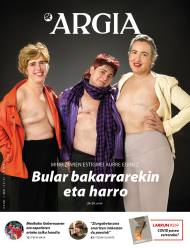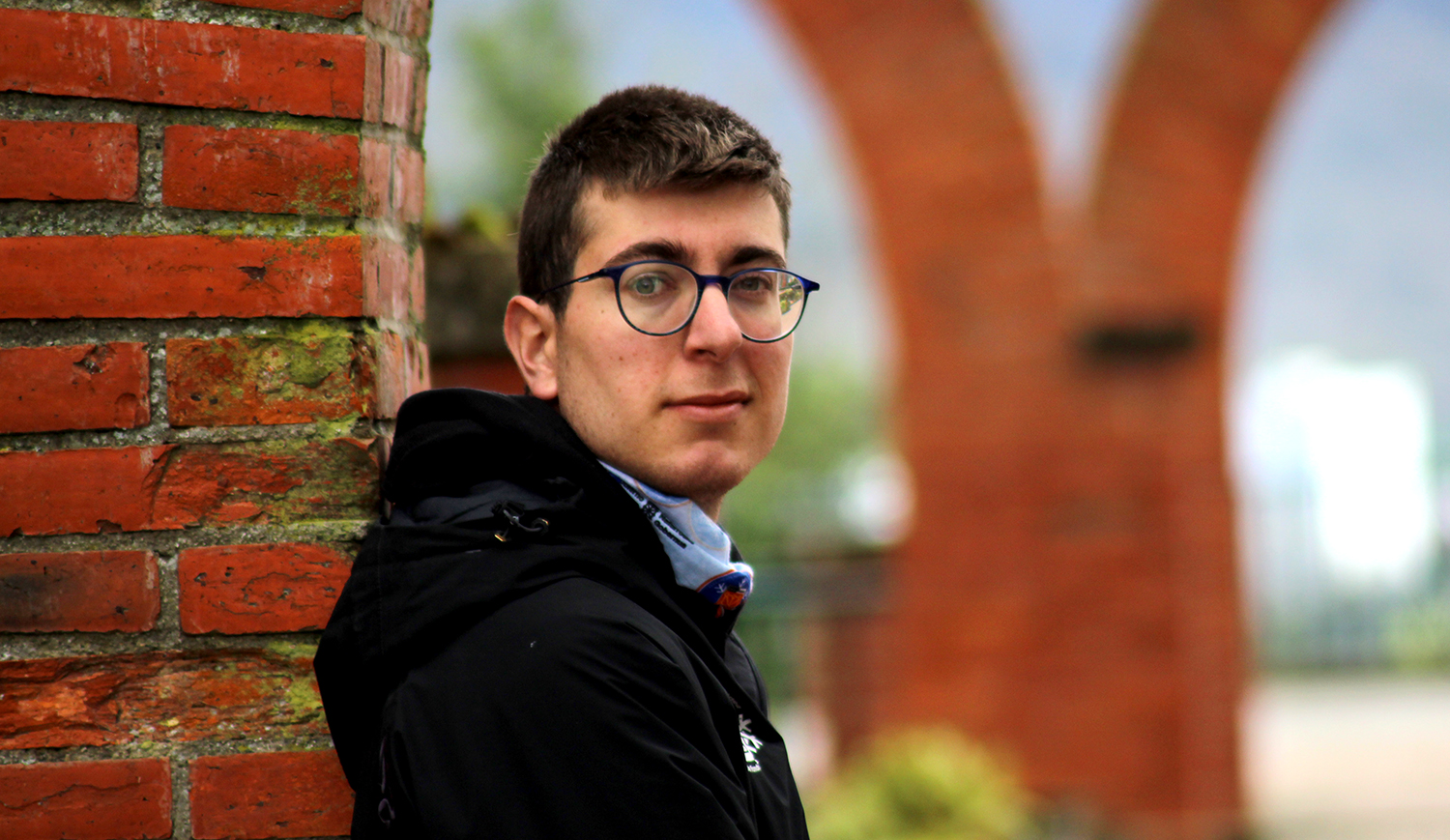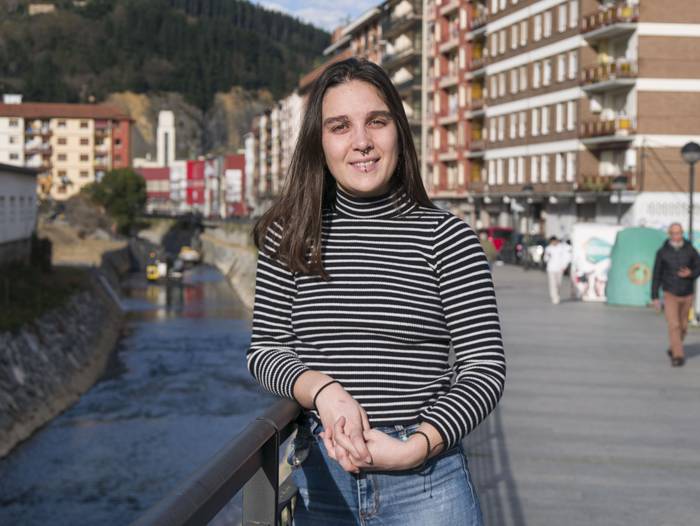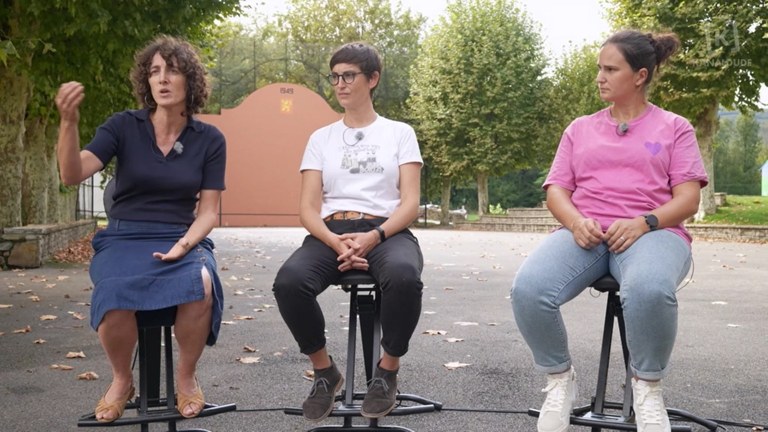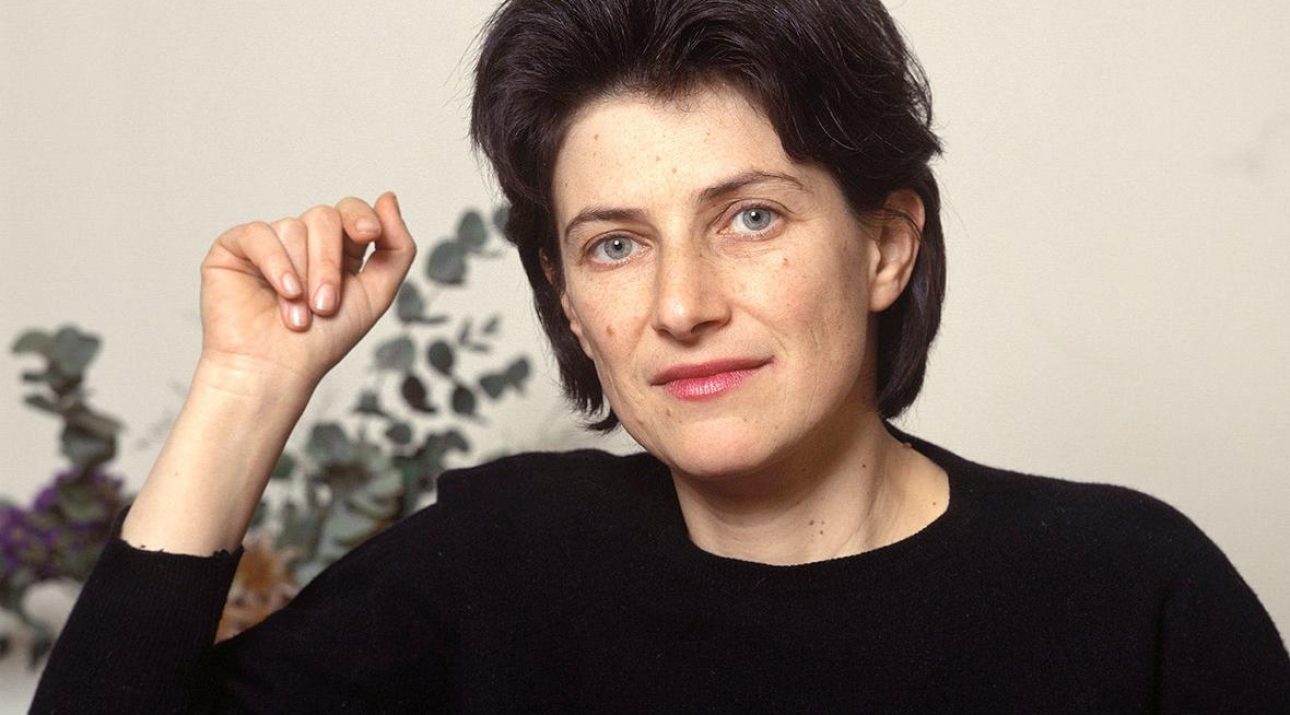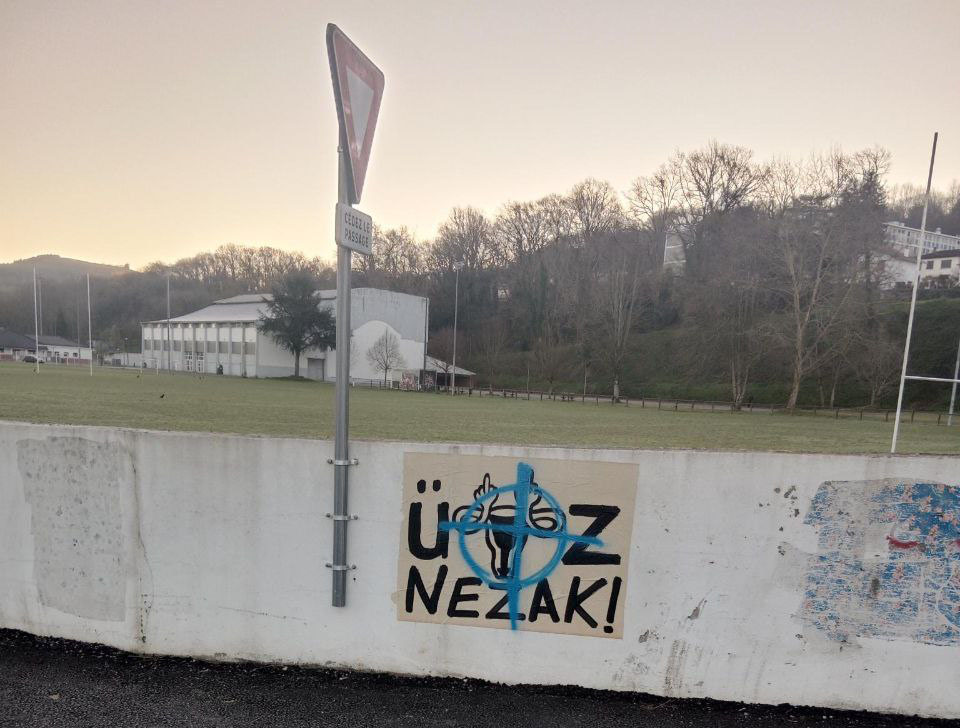The need to combat the collapse and the general crisis from ecofeminism
- The climate emergency is only one part of the global crisis we live in, and it is convenient to look at the problem and look at it as a whole. Having said that, Emagin, who works in training and feminist research, talks about collapse. Even if the atmosphere is catastrophic, the different rapporteurs have underlined the need to continue defining and defending the lives we want. Along this road, everyone needs an eco-feminist movement.

In this catastrophistic context, how are we going to make the tentative and concrete lives so as not to lose importance?”; “Is the situation going wrong, will it get worse as well?” Despite thinking about this, what are we going to do not discourage it and depress it, even the other way around, to give strength to change?” The activist economist and feminist activist Amaia Pérez Orozco reflects on these questions. On the day The collateral damage to our gazes, how to change our view of the world from ecofeminism, organized by Emagine, observed the place where environmentalism and feminism intersect.
This context is that of collapse, as Orozco says, a reality much wider than climate change. We are in the “crisis of social reproduction”: we are in a crisis that includes care, health, food, immigrants’ rights, energy poverty, etc. “Although at different intensities, at the global level and in different contexts we are not well, we are in a discomfort, the welcome is over.”
“Although we are collapses, any struggle is worth it, daily care is worth it.” Without it, because our lives go from being vulnerable to being precarious, turning precariousness into a “new regime of existence” and a “new model of life”. The time in which we live is that of the “anthropocene”, of the changes in the ecosystem caused by the activities of the human species; others, defined as “capital city”, activities in which capitalism is supported negatively.
Mirene Begiristain Zubilhgh,a professor and expert in agroecology, also participated in the contributions. It was based on the article The Braids of Ecofeminisms, published in the numbers 245-246 by Jakin. “Ecofeminisms are critical thoughts and practices that allow us to question the present” and hence the possibility of facing the collapse and entrenching sustainable social change. In fact, because patriarchy and the exploitation of nature are two sides of the same coin in almost all ecofeminisms, which like feminism are multiple, there is no single shared reading in ecofeminism.
The group of women of Etxalde, who move around food sovereignty, and the collective Aroztak, against the urban and touristic megaproject Aroztegia de Baztan, were making their struggles known. The most developed practices of ecofeminism, both worldwide and in the Basque Country, are in the field of food sovereignty and resistance to destructive projects. One of the features of this tool is its location at the intersection of the site with the global: “We have to bring local rooted struggles, but with an internationalist dimension,” says Orozco.
Although environmentalism and feminism are two precious struggles, they have gaps that ecofeminism can overcome: “Feminism cannot be separated from its internationalist and anti-colonialist spirit of environmentalism” and “the ecological economy and environmentalism will not move ahead unless they decriminalize their theories, praxis and movement”, in Begiristain’s words. He was basically aware of this fact that Emagine organized these days because he is aware that the ecologist gaze is not where it should be – “we are aware that we have developed feminism very much from urban centers and that the ecologist gaze has not been at the forefront of our political practice”. In Begiristain's view, this movement is also an opportunity to work on the political intersectionality of an increasingly broader area of feminists in the compass: “From ecofeminism and from practice it is also the opportunity to create alliances taking into account inequalities and differences, immersing ourselves in the oppression of the different axes of the political intersections”. He also points out that he provides interesting contributions to the “construction of new subjectivities”.
Growth, but planned
Esti Villamor, professor and environmental militant of Orozco, of Begiristain and of the rapporteurs, had the crumbling of the three or yes as a way to take – and if we do not want, because collapse leads us to live with less matter, energy and waste. But the real challenge lies in the question put by the rapporteurs: “Degrowth comes. But how? Based on redistribution and global justice, or suffering and continuing with the accumulations and expoliations of others?” Orozco also replied, regretting that there is currently no tendency to plan the decline. To realize this capitalist trend, I advise ending my vegetable garden with attitude: “Let my garbage go far, no wind farm in my eyes... all like that. But we need them in us to be aware of what our way of life demands and deduces.”
From ecofeminism, the need for our lives to intervene and form communities is even more important, knowing that the two feelings provoked by the crisis of social reproduction are repressed to the right: that of not being taken into account and that of the solitude caused by it. Orozco makes it clear: “Assuming the responsibilities of change” and proposing a consensual slowdown, we must define the lives we want to live, from the “universality” and the “construction of eco-responsibility”. Otherwise, probably because the harvests of the wild disaster would wrap them at the tip of the right.
By proposing a consensual deceleration, we must define the lives we want to live, from the universality and from the construction of eco-responsibility
This is a change that must be channelled through the system and the energy, numerical or green transitions proposed by the authorities as an exit solution do not serve. Renewable energies have many limitations: the dependence on the materials needed for construction; the destruction of the environment; colonialism, which is international, placing mineral mines in the peoples of the global South, or internally, for example, the wind farms of the Alavese mountains to meet the energy needs of neighbouring cities, etc. What not, about the pollution caused by numeracy. In this respect, Orozco also criticises the European Union’s Green Deal Pact, because what has been agreed does not allow for real change and therefore a solution.
Collapse involves far-reaching questions, objectives and changes. Since the day the need to reflect on it was raised at the level of Euskal Herria, influencing the needs of the integration of ecofeminism in the different popular struggles and the articulation between the feminist movement and the ecologist.
Gozamen aparta bezain deskribatzeko zaila dakar, norbaiten hitzak irakurri edo entzun ostean, zera pentsatzeak: “Horixe zen neu aurreko hartan azaltzen saiatu nintzena!”. Idazlea eta itzultzailea da María Reimóndez, eta galegoz aritzen da, hizkuntza... [+]
Orain arte desgaituak ez diren pertsonekin lehiatu da Uharteko Ipar Eski Taldeko Eneko Leyun eskiatzailea (Iruñea, 1998). 2024-2025 denboraldian, lehenengo aldiz parte hartu du Adimen Urritasuna duten Pertsonentzako Iraupeneko Eskiko Espainiako Txapelketan. Urrezko... [+]
Joan den urte hondarrean atera da L'affaire Ange Soleil, le dépeceur d'Aubervilliers (Ange Soleil afera, Aubervilliers-ko puskatzailea) eleberria, Christelle Lozère-k idatzia. Lozère da artearen historiako irakasle bakarra Antilletako... [+]
Endometriosiaren Nazioarteko Eguna izan zen, martxoak 14a. AINTZANE CUADRA MARIGORTAri (Amurrio, 1995) gaixotasun hori diagnostikatu zioten urtarrilean, lehen sintomak duela lau urte nabaritzen hasi zen arren. Gaitz horri ikusgarritasuna ematearen beharraz mintzatu da.
Duela aste batzuk, gurean egon ziren El Salvadorko eta Kanarietako emakumeen eskubideen aldeko hainbat aktibista. Sexu- eta ugalketa-eskubideez eta eskubide horiek urratzeak emakumeengan dituen ondorioez aritu gara; hala nola El Salvadorren berezko abortuak izanda homizidio... [+]
Zuberoako ohiturei buruzko bi liburu ditut gogoan. Batek XX. mendean aritu izan diren 180 dantzari eta soinulari aipatzen ditu. Haien artean, emakumezkorik ez da agertzen. Besteak, pastoralei egiten die errepasoa eta hor emakumeak aipatu aipatzen dira, baina omisio esanguratsuak... [+]
1984an ‘Bizitza Nola Badoan’ lehen poema liburua (Maiatz) argitaratu zuenetik hainbat poema-liburu, narrazio eta eleberri argitaratu ditu Itxaro Borda idazleak. 2024an argitaratu zuen azken lana, ‘Itzalen tektonika’ (SUSA), eta egunero zutabea idazten du... [+]
Antifaxismoari buruz idatzi nahiko nuke, hori baita aurten mugimendu feministaren gaia. Alabaina, eskratxea egin diote Martxoaren 8ko bezperan euskal kazetari antifaxista eta profeminista bati.
Gizonak bere lehenengo liburua aurkeztu du Madrilen bi kazetari ospetsuk... [+]
Pertsona lodiek lodiak izateagatik bizi izan duten eta bizi duten indarkeriaren inguruan teorizatzeko espazio bat sortzea du helburu ‘Nadie hablará de nosotras’ podcastak. Cristina de Tena (Madril, 1990) eta Lara Gil (Fuenlabrada, Espainia, 1988) aktibista... [+]
Donostiako Tabakaleran, beste urte batez, hitza eta irudia elkar nahasi eta lotu dituzte Zinea eta literatura jardunaldietan. Aurten, Chantal Akerman zinegile belgikarraren obra izan dute aztergai; haren film bana hautatu eta aztertu dute Itxaro Bordak, Karmele Jaiok eta Danele... [+]
Martxoak 8an egindako pintaketak gainetik margotu dituzte ikur faxistekin Zuberoako hiriburuan. Horren aurrean elkarretaratzera deitu dute, astelehenean.









